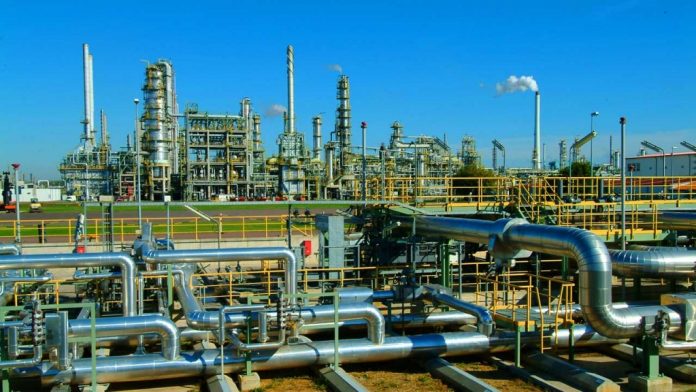The International Monetary Fund (IMF) has projected that Dangote Refinery has the potential to rescue Nigeria from the current economic downturn as well as provides an elixir for the country’s economy when it is completed and start production by 2022.
In its latest report on Nigeria’s economy, the Fund raised the hope that the start of production from the refinery, solely owned by Africa’s richest man, Aliko Dangote could help Nigeria improve its Current Account balance.
It said Dangote Refinery has the potential to catalyze more domestic crude oil production and boost GDP growth.
According to the report, on the upside, the Dangote refinery, if commencing production in 2022 as planned, could meet the full demand for domestic consumption of refined petroleum products, which are almost all imported at present, thereby, improving the CA balance.
“With crude oil for local refining not subject to the OPEC quota, the refinery also has the potential to catalyze more domestic crude oil production and boost GDP growth,” it said.
Many experts also projected that the refinery, which may cost Dangote about $15 billion to complete is capable of helping to save Nigeria huge foreign exchange in fuel importations.
The 650,000 capacity Dangote Refinery, is regarded as one of the world’s biggest oil refineries and could end the irony of Africa’s biggest oil producer importing estimated $7 billion of fuel yearly, and instead see it meeting its own needs and supplying neighbouring nations.
Renaissance Capital in a report in 2018 projected that Dangote Refinery has the potential to revolutionise Nigeria’s economy with its operations adding $13 billion, or 2.3 per cent to the nation’s Gross Domestic Product (GDP).
Dangote Refinery, which is described as Nigeria’s largest-ever industrial project, boasts a distillation column for separating crude into various fuels at different temperatures that is the largest of its kind in the world.
The 650,000 barrel-per-day refinery is just part of a $15 billion petrochemical complex that will also house a gas processor and the world’s biggest plant for ammonia and urea, which is used in making plastics and fertiliser.
Already, the fertiliser plant is said to be ready and could be inaugurated any time to add to the agricultural revolution not only in Nigeria but in some parts of Africa to boost the continent’s economy.


